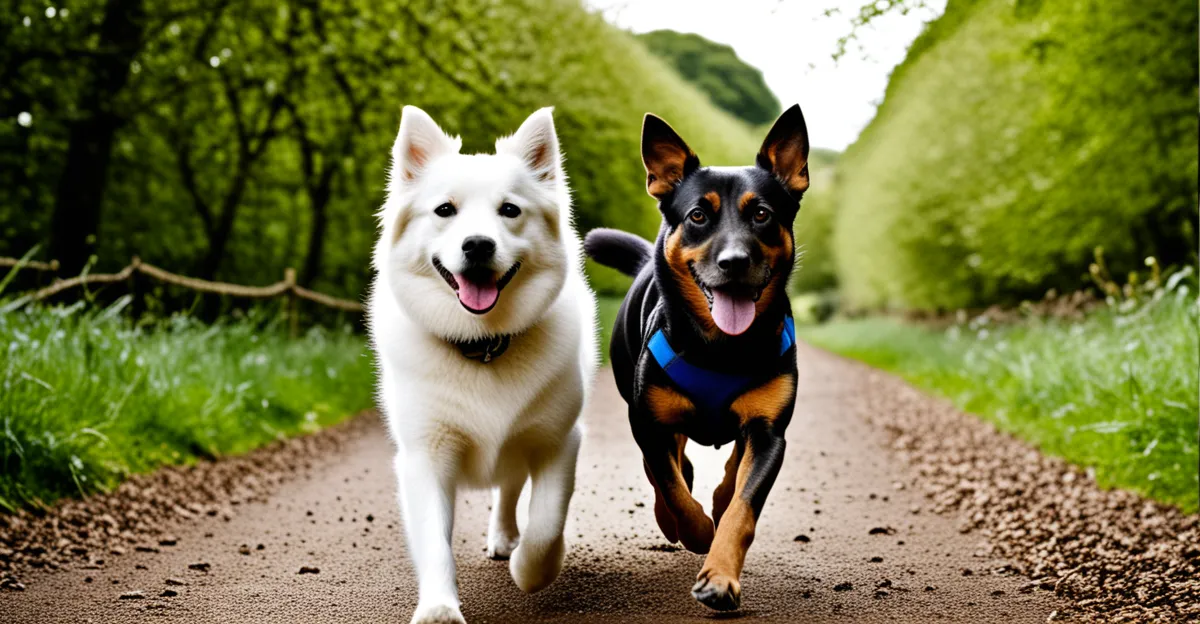Promoting a Balanced Diet for UK Pets
Ensuring your pet enjoys a balanced pet diet UK is fundamental for their overall health and vitality. A healthy pet food UK means providing nutrition that aligns with each species’ specific needs, which can vary widely between dogs, cats, and small mammals. Selecting high-quality pet food involves choosing options rich in essential proteins, fats, vitamins, and minerals formulated for the pet’s life stage and activity level.
When selecting a balanced diet, scrutinise ingredient lists and opt for brands that prioritise natural, minimally processed components. Many UK pet food brands offer tailored recipes designed to meet established nutritional standards. This approach guarantees your pet receives necessary nutrients without harmful additives.
Also read : How Can You Ensure a Pet-Friendly Home in the UK?
Pet nutrition tips stress the importance of portion control to avoid obesity, a prevalent issue in UK pets. Regularly measuring food and assessing body condition can prevent overfeeding. Consult your veterinarian for guidance on the appropriate daily calorie intake, considering your pet’s breed, age, and exercise routine. By combining proper portions with nutritionally complete foods, a balanced pet diet UK fosters longevity and wellbeing.
Implementing Safe and Engaging Exercise Routines
Keeping pets active for health and happiness
In parallel : What Are the Unique Traits of UK Pets?
Exercise for pets UK is essential in maintaining an active pet lifestyle UK that supports physical health and mental wellbeing. Dogs typically require daily walks tailored to their breed and energy levels. For example, a border collie benefits from brisk, long walks, while a smaller breed may need moderate-paced outings. Well-maintained walking routes in parks across the UK, such as the South Downs or Epping Forest, offer safe environments to promote physical activity and socialisation.
Cats, although more independent, also need stimulation. Pet activity ideas like interactive toys or supervised outdoor time in enclosed gardens help prevent boredom and encourage movement. For small animals such as rabbits or guinea pigs, exercise can be arranged through secure playpens indoors, providing a controlled yet stimulating environment.
In cases of poor weather or limited space, indoor activities become crucial. Hide-and-seek games, puzzle feeders, or agility courses created with household items are practical options. These approaches align with pet nutrition tips: exercise complements a balanced pet diet UK by preventing obesity and promoting cardiovascular health. Tailoring exercise for pets UK not only enhances their quality of life but also strengthens your bond through shared activity.
Preventative Healthcare Essentials for UK Pets
Keeping your pet protected and thriving
UK pet healthcare hinges on timely vaccinations for pets UK to prevent common diseases like parvovirus in dogs and feline herpesvirus in cats. Regular vaccination schedules, advised by your veterinarian, form the foundation of disease prevention. Parasite control is equally vital; effective flea, tick, and worm treatments protect pets from discomfort and serious health risks prevalent throughout the UK.
Why are regular vet check-ups UK necessary? These visits detect health issues early, enabling prompt treatment and reducing complications. Routine dental care is part of these check-ups, preventing painful oral diseases that impact overall wellbeing.
Pet insurance and local healthcare schemes offer financial security. They make accessing veterinary services more affordable and encourage owners to maintain consistent UK pet healthcare. Many UK clinics also provide wellness plans tailored to your pet’s needs, promoting proactive health management.
By prioritising vaccinations, parasite control, and routine examinations, you uphold your responsibility for UK pet healthcare and enhance your companion’s quality of life sustainably. Ensuring these preventative measures helps your pet remain energetic, happy, and resilient against common illnesses.
Understanding UK Pet Laws and Regulations
Navigating UK pet laws ensures responsible and lawful pet ownership UK-wide. Central to these regulations is microchipping, a legal requirement for nearly all dogs and increasingly recommended for cats. Microchipping guarantees prompt identification should your pet become lost, aiding in swift reunification.
Pet ownership UK regulations also mandate licensing where applicable and adherence to local by-laws that govern pet behaviour in public spaces. For example, dogs must be kept on leads in certain parks or near wildlife areas, reflecting efforts to protect the environment and ensure public safety.
When planning travel within the UK with pets, owners must comply with rules related to transport and accommodation, including vaccination proof and parasite control. Understanding these guidelines prevents fines and ensures a smooth, stress-free experience for you and your companion.
By meeting obligations like microchipping, licensing, and following public safety laws, you demonstrate responsible pet ownership UK. Staying informed about evolving regulations safeguards your pet’s welfare and your legal standing, fostering a harmonious relationship between pets, owners, and the community.









